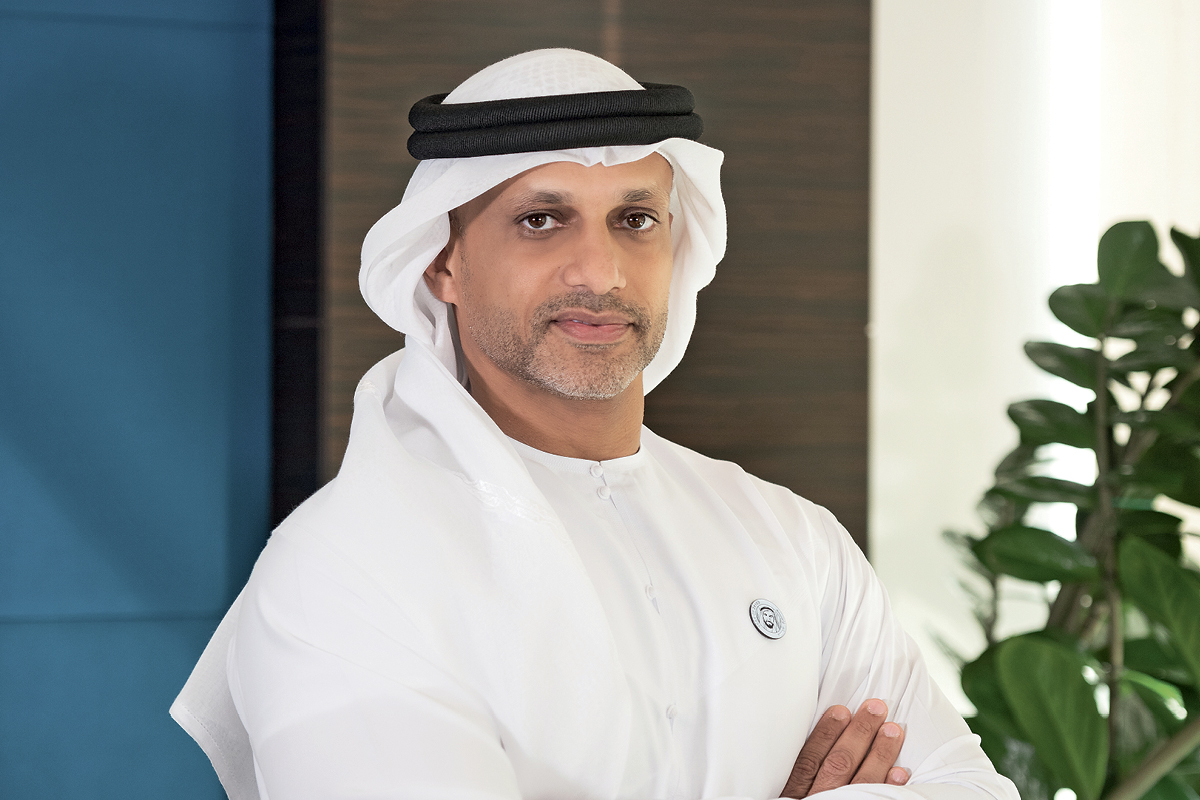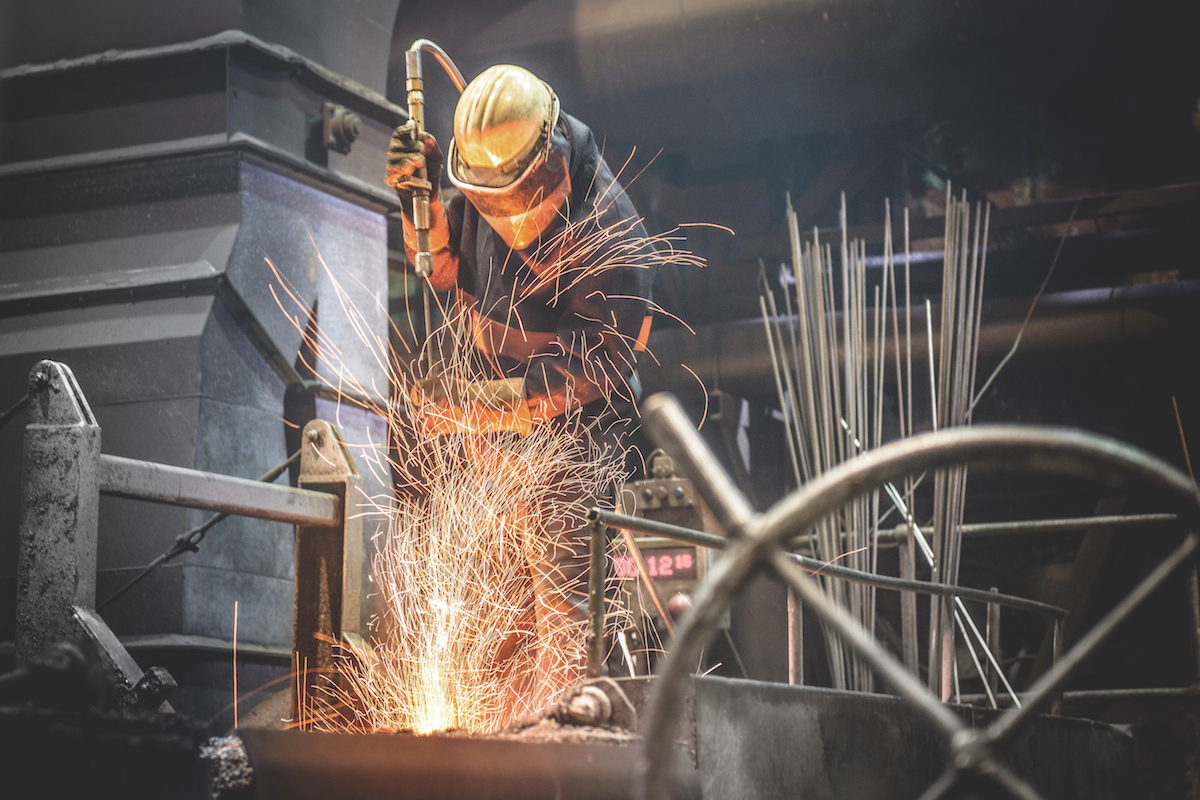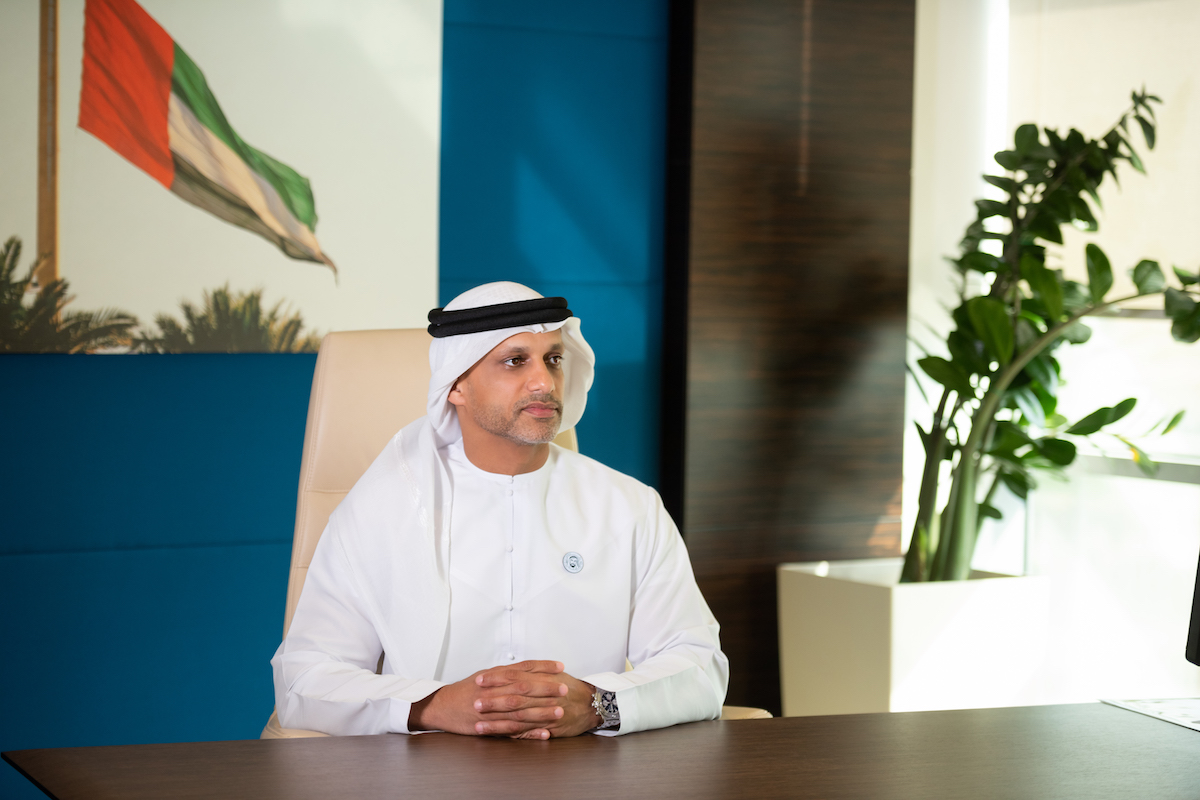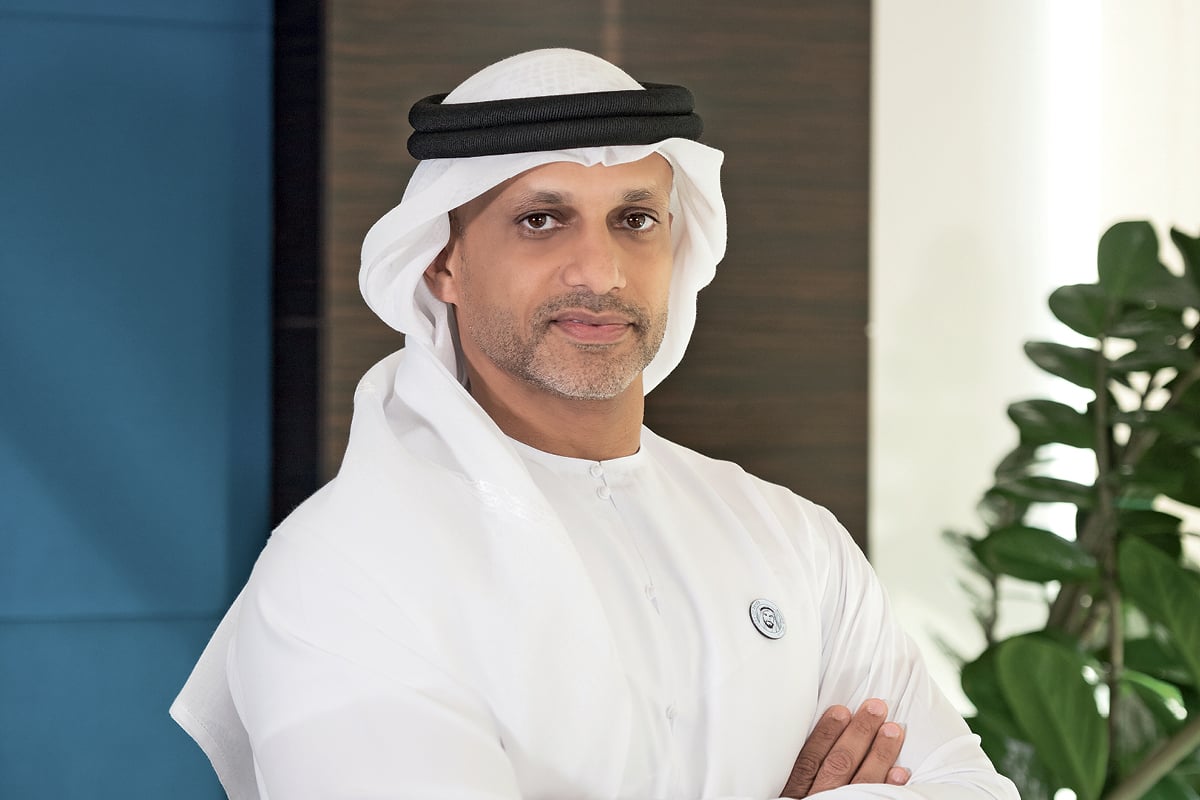From a simple re-roller of imported steel billets to producing 3.5 million tons of steel a year, Emirates Steel has earned its spot as a leading steel manufacturer in the Middle East.
Owned by Senaat, the UAE’s largest industrial conglomerate and the driving force behind the Abu Dhabi government’s industrial diversification policy, the company is spearheaded by Saeed Ghumran Al Remeithi, the first UAE national to be appointed CEO and the first to be appointed Chairman of the World Steel Economics Committee.

Since its launch in Abu Dhabi just 20 years ago, Emirates Steel has expanded its portfolio to include a diversified product range and is one of the few companies in the world, and the only one in the Middle East, to be certified by the American Society of Mechanical Engineers to produce nuclear-grade rebar for use in nuclear power plants.
As the only integrated steel plant in the UAE, Emirates Steel exports to 40 countries and has been used throughout the region to build countless iconic landmarks including the Emirates and Presidential palaces, Etihad Towers, Ferrari World and Al Habtoor City.
Saeed talks to The CEO Magazine about the demand for steel in the region and his passion for developing local talent.
The CEO Magazine: Did you always want to be an engineer?
Saeed: I developed a passion for engineering at a young age, which is what ultimately led me to study abroad at California State University and major in electrical engineering. My time away from my home and family increased my sense of responsibility and I became committed to being successful – personally, academically and professionally.
Beyond what I learned at university, my time in the United States helped shape my personality and drove my independence. It was a memorable time in my life and the invaluable life experiences I accumulated undoubtedly contributed to where I am today.
Where were you before Emirates Steel?
I worked at the Senaat General Holding Corporation as the project head in the Industrial Development Fund Department. The department was responsible for evaluating proposed projects and facilitating the necessary financial arrangements for the ones approved.
I took the skills and expertise developed at Senaat to Emirates Steel, where I joined as a production engineer. I became familiar with most aspects of operations, from engineering and manufacturing to project development and sales, and, with more training and development and with the support of my colleagues, was able to rise through the ranks to CEO.
Tell me about Emirates Steel and what you produce.
We produce a wide range of products including heavy sections, reinforcing bar, wire rod, billets and sheet piles. We also offer value-added products such as steel with higher tensile strengths and steel with special mechanical properties so that less steel is required by customers.
Emirates Steel has evolved from its roots of being a simple and relatively low value-added processor of steel into a sophisticated manufacturing business, with a high value-added business model. Thus, the company is moving towards higher value-added products, including its Q-class (nuclear quality) steel, medium- and high-carbon wire rod, offshore grades in sections and sheet piles.
Our products are used across numerous industries in a variety of ways, most visibly in the construction of new buildings and infrastructure. We’re well positioned geographically and strategically to be one of the region’s major supplier to steel intensive construction, oil and gas, petrochemical and infrastructure projects.

Is the construction industry in the UAE booming or in decline?
According to the latest research from Lucintel, the global construction industry is expected to reach an estimated US$10.5 trillion by 2023, and it is forecast to grow at a compound annual growth rate of 4.2% from 2018 to 2023. Our relationship with the construction industry is strong, and we look forward to continuing to provide them with the products and services they require as one of the region’s leading producers of steel.
Is the forecast by the World Steel Economics Committee that demand for global steel will grow by 1.4% enough for the region?
In 2018, global steel demand continued to show resilience supported by the recovery in investment activities in developed economies and the improved performance of emerging economies. Demand is expected to remain positive; however, risks have increased.
Rising trade tensions and volatile currency movements are increasing uncertainty. Normalisation of monetary policies in the US and EU could also influence the currencies of emerging economies.
In the Middle East, steel demand increased by 2.1%, reaching 54.5 million tonnes last year and is anticipated to grow by 1.2% to 55.1 million tonnes. Structural reforms and rising oil prices have helped boost the slow upward growth of steel in the Gulf Cooperation Council region, and we remain optimistic about growth over the next five years.
Has steel become more important than oil to the UAE?
We all know that a well-established steel industry is a key indicator of a modern economy; in fact, it is also a key indicator of a healthy economy. The government of Abu Dhabi has established an integrated steel industry for several reasons. One is to support the development of the UAE through the boom of construction and infrastructure, and another is to diversify the economy.
Steel production is an important aspect of the UAE government’s plan for the future, as outlined in the UAE Centennial 2071 Plan. This plan seeks to transition the UAE from a hydrocarbon-based economy to a knowledge-based economy that ensures sustainable development and social and economic growth through the provision of high-value jobs across a wide range of advanced industries and sectors.
How is Emirates Steel contributing to this plan for the future?
We are very proud of our diversity; we employ 2,200 people comprising more than 50 nationalities working in jobs from factory work to senior management. UAE nationals make up 75% of our senior executive management teams and 21% of our workforce.
To ensure their ongoing success, we offer mentorship and training programs that provide the skills and expertise necessary for them to become future industry leaders.

What is your leadership philosophy?
I believe in investing in people and empowering them to succeed. Leadership is too often framed as an individual making important decisions, when the most important skill for any leader is listening. Understanding the views and opinions of others and leading by example are the best ways to ensure the continued success of any enterprise.
“I believe in investing in people and empowering them to succeed.”
How do you inspire your executive team?
I am passionate about my job and strive to inspire excellence in everyone at Emirates Steel by highlighting the significant role our company has to play in the future success and development of the UAE.
What do you enjoy outside of work?
My family is at the centre of my life and I endeavour to spend as much time with them as I can. In addition, I enjoy desert off-roading, which requires knowing your destination, your abilities and the capabilities of your vehicle. This hobby provides constant and ever-changing challenges, which suits my personality.



